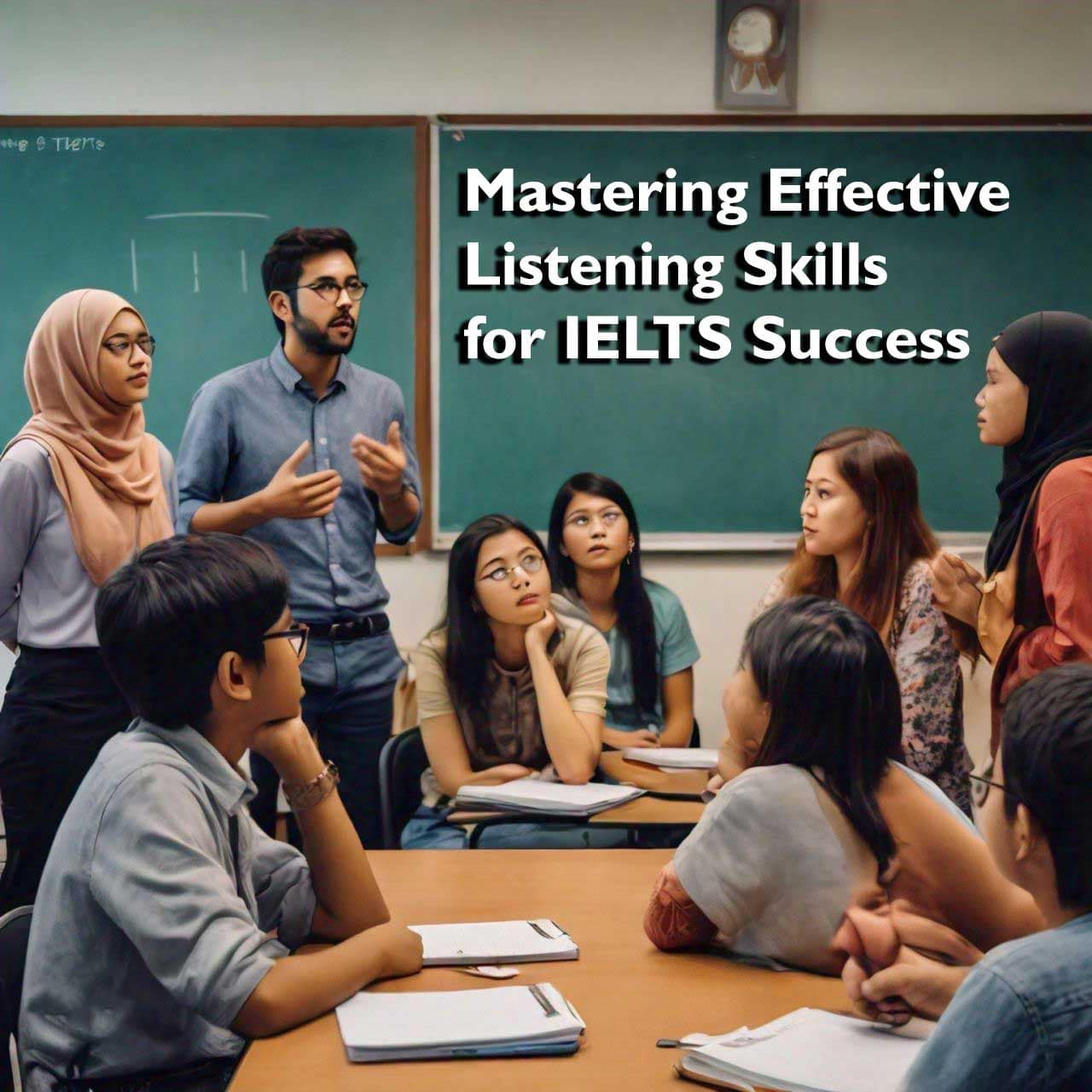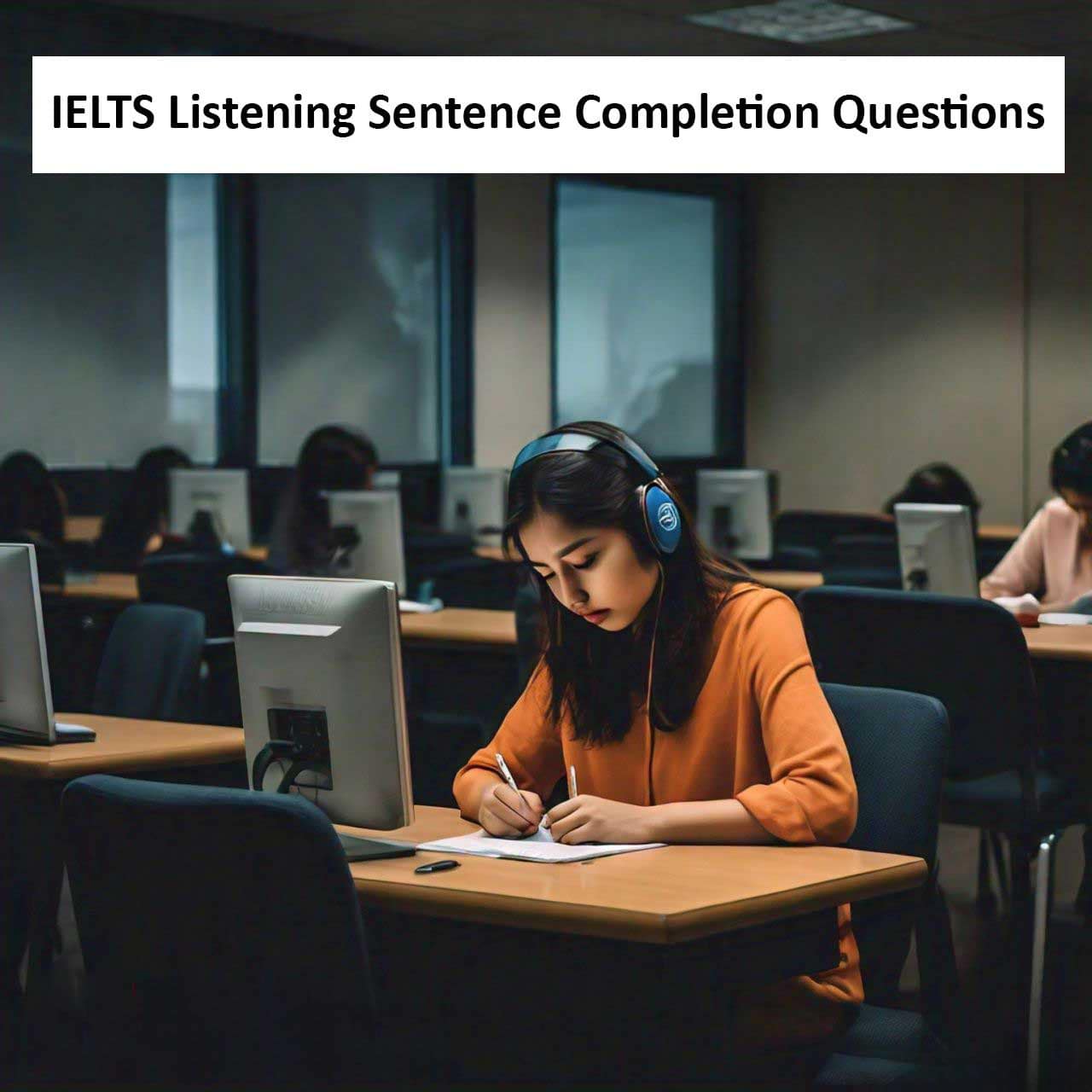The International English Language Testing System (IELTS) is a comprehensive assessment of your English language abilities, and one of its critical components is the Listening test. Excelling in this section requires more than just understanding English; it demands effective listening skills. Whether you are aiming for academic excellence or meeting immigration requirements, here’s how you can hone your listening skills for the IELTS test.
Understanding the IELTS Listening Test
The IELTS Listening test lasts for about 30 minutes, with an additional 10 minutes to transfer your answers to the answer sheet. It consists of four sections, each progressively harder, featuring a range of different accents and real-life contexts. You’ll encounter various types of questions such as multiple choice, matching, plan/map/diagram labeling, form/note/table/flow-chart/summary completion, and sentence completion.
Strategies for Developing Effective Listening Skills
1. Active Listening Practice
Active listening is more than just hearing words; it involves fully engaging with the content. Practice this by:
– Listening to a Variety of Sources: Engage with different accents and styles of English through podcasts, news broadcasts, TED talks, and movies.
– Taking Notes: While listening, jot down key points, numbers, and names. This will help you capture essential information and improve focus.
– Summarizing Content: After listening to a segment, summarize what you’ve heard. This ensures you’ve comprehended the main ideas and details.
2. Understanding the Test Format
Familiarity with the test format can significantly boost your performance. Knowing what to expect reduces anxiety and helps you manage time effectively during the test.
– Review Sample Tests: Go through sample IELTS listening tests available on the official IELTS website.
– Analyze Question Types: Understand the different types of questions and practice specific strategies for each.
3. Improving Vocabulary and Predictive Skills
A robust vocabulary is essential for understanding the range of topics covered in the listening test. Additionally, being able to predict the kind of information that follows is a valuable skill.
– Expand Your Vocabulary: Learn new words daily and understand their usage in different contexts.
– Predict Content: While practicing, try to predict what kind of information or word might come next in the audio.
4. Developing Concentration and Focus
Listening tests require intense concentration. Improve your focus through:
– Mindfulness and Meditation: Regular mindfulness exercises can enhance your concentration abilities.
– Limiting Distractions: Practice listening in a quiet environment where you can focus solely on the audio.
5. Practicing Under Test Conditions
Simulating real test conditions can help you manage time and improve your performance under pressure.
– Full-Length Practice Tests: Take full-length IELTS listening tests to get used to the test’s duration and pace.
– Timed Practice: Time yourself during practice sessions to improve your speed and accuracy.
Practical Exercises to Boost Listening Skills
1. Dictation Exercises
Listen to short passages and write down what you hear word-for-word. This improves your ability to catch details and understand spoken English accurately.
2. Listening to TED Talks
TED Talks are a great resource for diverse topics and accents. Listen to talks with transcripts available, so you can follow along and check your comprehension.
3. Interactive Listening Apps
Use apps like Duolingo, FluentU, or ELSA Speak, which offer interactive listening exercises and instant feedback.
4. Group Listening Practice
Join a study group where you can practice listening and discussing different audio clips. Sharing insights can enhance your understanding and expose you to various interpretations.
Conclusion
Effective listening skills are crucial for acing the IELTS Listening test. By incorporating active listening practices, understanding the test format, enhancing your vocabulary, and developing concentration, you can significantly improve your listening abilities. Remember, consistent practice and exposure to different listening materials are key to mastering this skill. Approach your preparation with dedication, and you’ll be well on your way to achieving your desired IELTS score.



